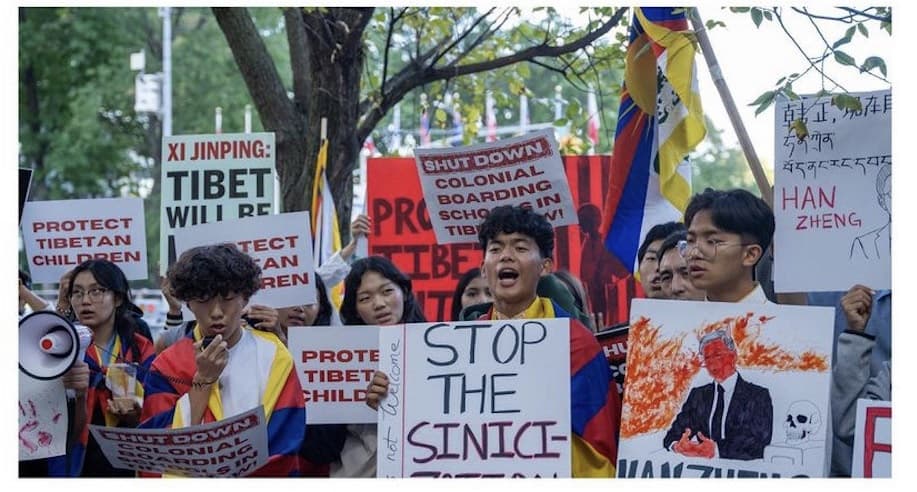A minister from the Tibetan government in exile has said during a visit to Canberra that the Pacific country must not compromise on human rights as it improves its relationship with Beijing because “the truth must be told”,.
Norzin Dolma, a minister of the Central Tibetan Administration based in Dharamshala in India, met Australian MPs from across the political spectrum on Thursday to warn against a “quiet diplomacy” approach to “gross human rights abuses” and “brutal suppression” in Tibet.
She also urged the Australian government to use its new Magnitsky-style sanctions laws to target Chinese Communist party officials for “threatening the very existence and survival and maintenance of Tibetan identity, culture and language”.
The prime minister, Anthony Albanese, visited China last week for meetings with the president, Xi Jinping, and the premier, Li Qiang, as part of what the Australian government calls the “stabilisation” of ties with its largest trading partner.
Albanese said he had raised human rights during the trip, although he has not gone into details about the content.
Norzin Dolma, the minister for information and international relations, said she understood the desire of the Australian government to stabilise the relationship.
“But what we are asking for is to have a principled engagement and not to compromise on your values, principles and priorities,” she said.
Asked whether quiet diplomacy was acceptable, Norzin Dolma was firm: “No, no, no, because there needs to be accountability and there needs to be transparency …
“We only seek justice and our call is only for the truth to be told, and while the truth should be told behind closed doors, it should also be told publicly, whatever needs to be said. The Australian government needs to take a stronger and more proactive role.”
Norzin Dolma urged the Australian government to take a strong stand when China faces the “universal periodic review” of its human rights record at the UN next year, and should also oppose CCP meddling in the process of the selection of the next Dalai Lama.
She conveyed this message during meetings with MPs and senators from Labor, the Coalition and the Greens, including the shadow foreign minister, Simon Birmingham, and the deputy speaker, Sharon Claydon.
The chair of the parliament’s security and intelligence committee, Peter Khalil, also met her, as did the Labor MP Susan Templeman and the Greens senator Janet Rice.
Our Australian afternoon update breaks down the key stories of the day, telling you what’s happening and why it matters
The executive officer of the Australia Tibet Council, Zoe Bedford, said the visit was timely to ensure human rights abuses remained “an integral part of the conversation” as Australia and China renewed their trading relationship.
In February three UN special rapporteurs said about 1 million Tibetan children were “affected by Chinese government policies aimed at assimilating Tibetan people culturally, religiously and linguistically” through a boarding school system.
These UN experts said they were “very disturbed that in recent years the residential school system for Tibetan children appears to act as a mandatory large-scale programme intended to assimilate Tibetans into majority Han culture, contrary to international human rights standards”.
The Chinese government has repeatedly denied claims of human rights abuses, including in Tibet, and has said the region “enjoys social stability”.
A Chinese foreign ministry spokesperson, Mao Ning, rejected the February boarding school report, saying some UN experts “endorsed lies and rumours to malign and discredit China”.
She also accused some countries of “politicising and instrumentalising human rights issues” in order to “suppress and contain China”.


